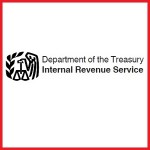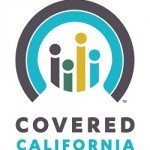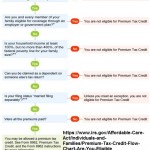Your payment amount is capped at the cost of the national average premium for a bronze level health plan available through the Marketplace. For 2015, the annual national average premium for a bronze level health plan available through the Marketplace is $2,484 per year – or $207 per month – for an individual and $12,240 per year – or $1,020 per month – for a family with five or more members.
Confusion over IRS Health Care Forms
As you’re wrapping up your tax return, the IRS wants to help you understand the differences among forms and documents related to the Affordable Care Act. Here are five tips for individuals navigating the filing requirements related to the health care law.
1095 A, B, C explained by Covered California
The Affordable Care Act (ACA) requires IRS Forms 1095 – A, B, and C be provided to consumers and a copy to the IRS. Below is an overview of each form, which comes with a letter of explanation, tax reporting directions, and contact information for the appropriate follow-up.
How to report your 1095-B or 1095-C
This year, you may receive one or more forms that provide information about your 2015 health coverage you had in 2015. These forms are 1095-A, 1095-B and 1095-C. This tip is part of a series that answers your questions about these forms.
Who is exempt from the IRS health insurance penalty?
For any month during the year that you or any of your family members don’t have minimum essential coverage and don’t qualify for a coverage exemption, you are required to make an individual shared responsibility payment when you file your tax return.
How to determine if you can claim the Premium Tax Credit for health insurance
The premium tax credit is a credit for certain people who enroll, or whose family member enrolls, in a qualified health plan offered through a Marketplace. Claiming the premium tax credit may increase your refund or lower the amount of tax that you would otherwise owe.
1095-B and 1095-C Forms may arrive late
The IRS has extended the due dates for the health insurance coverage forms 1095-B and 1095-C to be sent out as late as March 31, 2016. The original issue date had been January 31, 2016. As a result, some tax filers may not have either the 1095-B or 1095-C when they file their federal taxes. However, neither a copy the 1095-B or -C need to be supplied with the tax return according to the IRS.
IRS health insurance exemptions to avoid penalties
The Affordable Care Act requires you and your dependents to have health care coverage, an exemption from the coverage requirement, or make a shared responsibility payment for any month without coverage or an exemption with your return. This law will affect your federal income tax return when you file this year.
Employees to receive 1095-C for employer health insurance coverage
Employers with 50 or more full-time employees, including full-time equivalent employees, in the previous year use Form 1095-C, Employer-Provided Health Insurance Offer and Coverage, to report the information required about offers of health coverage and enrollment in health coverage for their employees. Form 1095-C is used to report information about each employee.
1095-B Form for the IRS and tax return
Form 1095-B, Health Coverage, is used to report certain information to the IRS and to taxpayers about individuals who are covered by minimum essential coverage and therefore aren’t liable for the individual shared responsibility payment.


